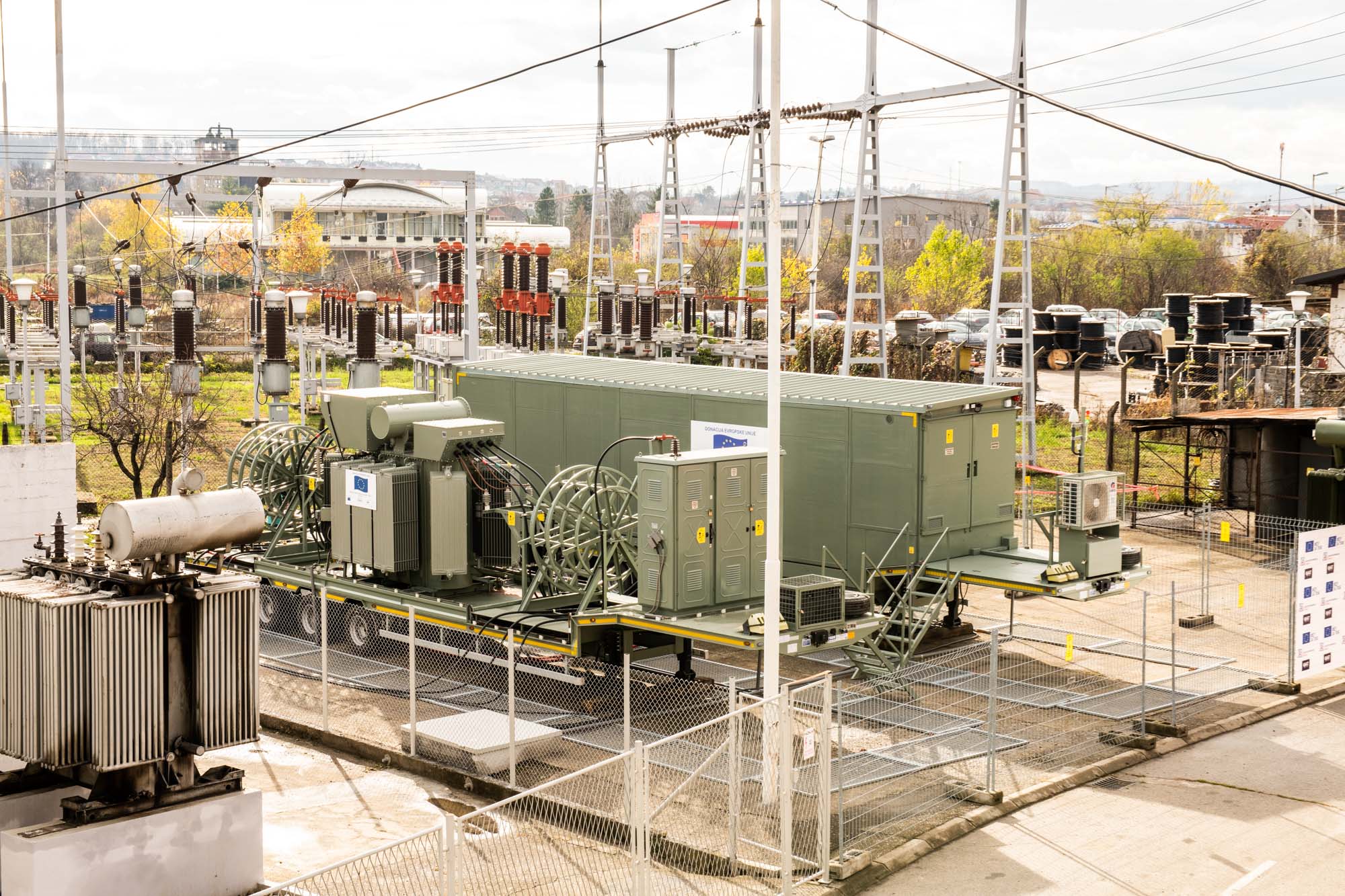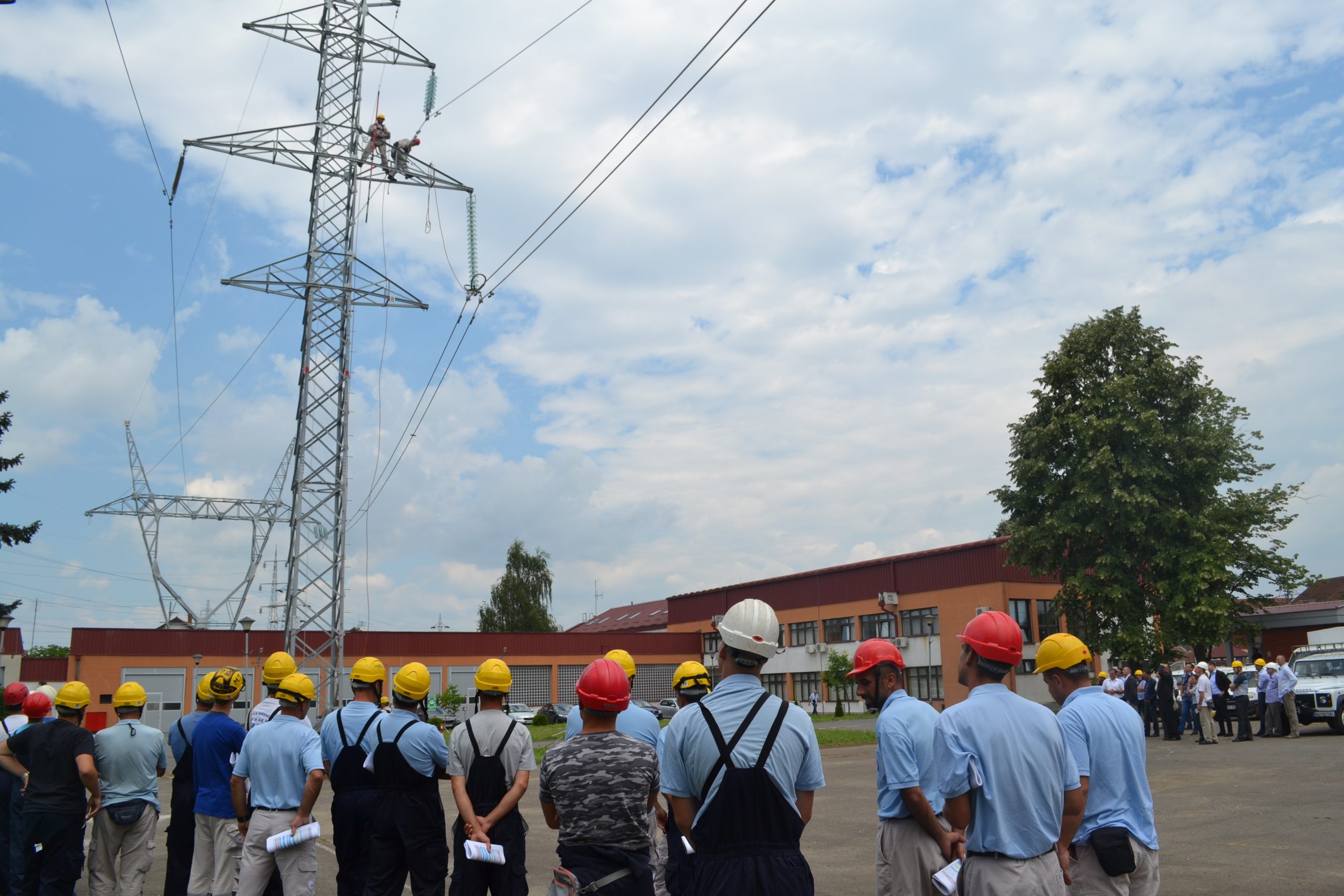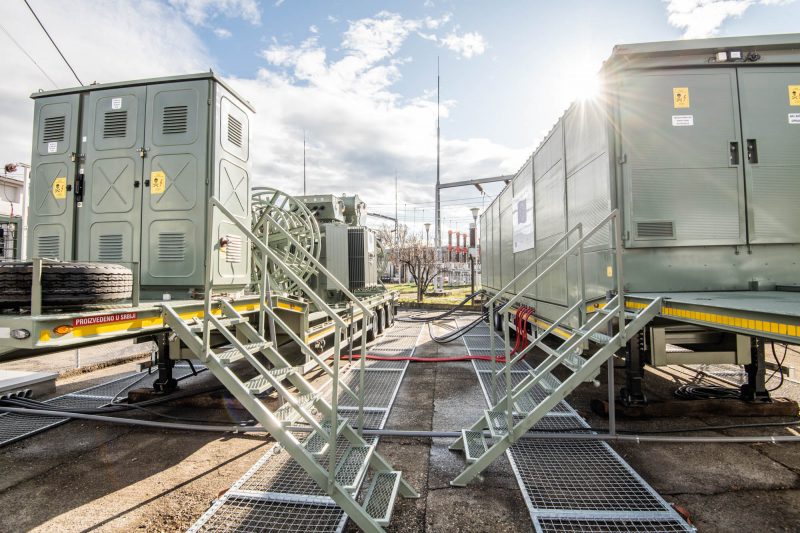“Sick bed is the most expensive bed in the world” – these were the words of Steve Jobs, the founder of Apple and probably the greatest technological innovator of the 20th century. However, Jobs’ devices and medical devices in hospitals are nothing without electricity. To provide proper health care during the COVID-19 pandemic, a whole army of people must ensure that other systems function properly: this is why electricity, heat and gas must be available at all times. There is no ventilator that can operate without electricity.
In autumn of 2020, new temporary “COVID hospitals” were built in Serbia – in Batajnica near Belgrade and in Kruševac. Both hospitals are supplied with electricity through 35/10 kV mobile substations donated to Serbia by the European Union (EU) as part of the EU assistance in the European integration process. Serbia previously did not own any mobile substations at a voltage level that can handle the supply and uninterrupted operation of large systems. This goes to show how taking care of the reliability of supply in a timely manner can ensure fast and efficient supply in extraordinary circumstances.

Money invested in security of supply is often criticised as money wasted. Critics claim that this equipment is not being put to use and is instead being kept at warehouse. However, in extraordinary circumstances, without spare equipment already at disposal, it might be too late. In those situations, equipment is invaluable. Two out of four acquired substations have already been put to use in Serbia. The other two are ready and waiting to be installed should any other extraordinary circumstances arise again or should the equipment that is being used require fixing or should the supply system fail.
Energy security and reliability of supply are an imperative for EU Member States. Security of supply is an important prerequisite for sustainable economic development of any country. To reach the level of economic development of EU Member States, Serbia will need to maintain its own energy security and reliability of supply. Energy supply from different directions and sources, including from the country itself, is essential for development.

The investment in the construction of a new Niš-Sofia gas pipeline, connecting the gas supply systems of Bulgaria and Serbia from, is an investment in the future and in greater security of supply. The EU is aware of the importance of regional connection of natural gas systems and has therefore donated nearly EUR50 million for the construction of this pipeline.
- Serbia is the country with the highest percentage of coal of low calorific value (lignite) in electricity production, about 65%
- At the moment, some 21% of electricity produced in Serbia is produced from renewables.
Does Serbia need another pipeline? Just as any business or social success today is impossible without connecting with and relying on partners, connecting Serbia with EU Member States presents both a challenge and an obligation for Serbia. It will require joint efforts of both parties due to many conflicting provisions that need to be updated and harmonised.
By gradually harmonising its energy strategy with the strategy and directives of the EU, Serbia has a chance to turn its energy sector into the driver of economic development that relies on decarbonisation, green economy, renewables and security of supply.

The support from the EU to energy sector in Serbia has amounted to more than EUR 830 million from 2000 up to now. Energy sector is in the focus of the EU because it has a great impact on all other sectors in the society. The projects the EU is implementing in the energy sector decrease the dependency on fossil fuels, increase the use of renewable energy sources and increase the energy efficiency.
In Serbia, the projects from this area ensure a stable energy supply respecting the environment, encourage the liberalization of the market and of the investments.
The support from the European Union is implemented in cooperation with the Serbian Government. Overall, the European Union is by far the biggest investor, trade partner and biggest donor to Serbia. With over 3 billion Euros in non-refundable aid to Serbia in the last two decades, the EU is supporting Serbia to become a more prosperous, sustainable, fair, secure and democratic country, prepared to join the Union.
Source: Europa.rs

Social Media links